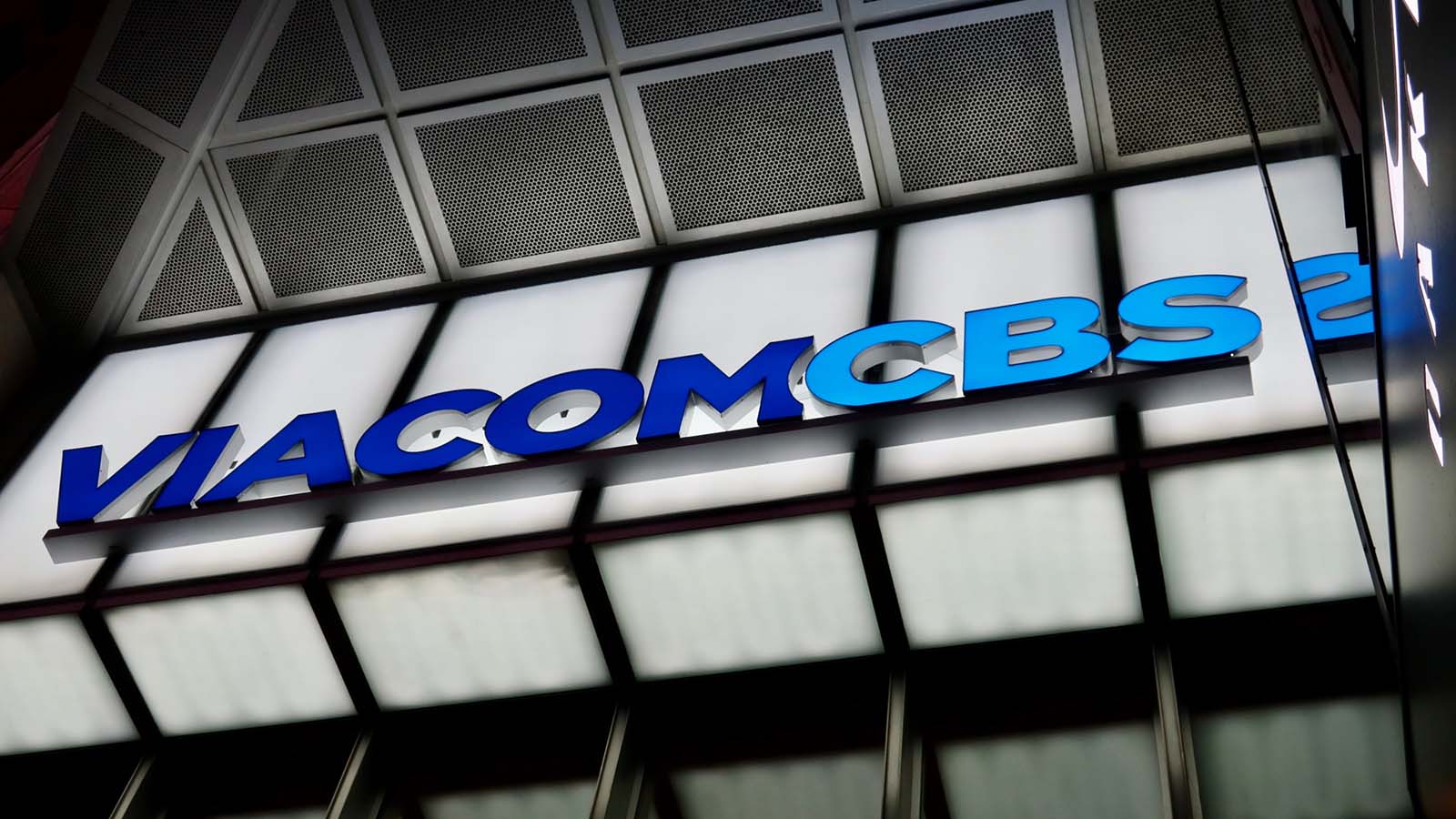Is it worth buying the stock of ViacomCBS (NASDAQ:VIAC) stock in hopes that the company will be acquired by media giant Comcast (NASDAQ:CMCSA)?

VIAC stock got a bump in late June after media reports surfaced that Comcast was considering making a bid for ViacomCBS in order to strengthen its streaming content. The idea of Comcast and ViacomCBS combining was exciting to many investors.
A deal between the two would bring together both Universal Pictures and Paramount Pictures, as well as NBCUniversal Media, Nickelodeon, and the Food and Travel channels. The combined entity would have many hugely popular brands under one roof, including the Fast & Furious and Jason Bourne franchises.
Unfortunately, it doesn’t look likely that Comcast will make a play for ViacomCBS any time soon. The latest media reports claim that a potential merger between the two entertainment giants has been put on hold. There are concerns about the current regulatory environment in Washington. The Biden administration has vowed to bring in a new antitrust regime aimed at preventing outsized influence and control on the part of technology and other business titans.
Steep Decline
VIAC stock enjoyed a big run higher earlier this year and then suffered a huge drop. From Jan. 4 to March 22, ViacomCBS stock rose 177%, climbing from $36.60 all the way to a peak of $101.97. The stock was one of the biggest gainers in this year’s first quarter.
Sadly, the drop in the share price was just as fast and steep as the run-up. After summiting above $100 on March 22, ViacomCBS’ share price was back down to $37 by April 20. All of the gains from the first quarter were wiped out.
The aggressive pullback was attributed to ViacomCBS being targeted as a meme stock by retail investors who were trying to perpetrate a short squeeze on the company’s shares. Since the April crash down to $37, VIAC stock has risen to near $41.
But most of that gain occurred after rumors surfaced that ViacomCBS was being targeted for a takeover by Comcast. For most of the second quarter, ViacomCBS’s stock had been flatlined at $40 per share. Without the hordes of retail investors to prop it up, the stock has moved very little.
Streaming Success
Despite the avalanche drop in its share price, ViacomCBS has achieved a measure of success this year with the launch in March of its Paramount+ streaming service, which includes the company’s CBS All Access content.
Paramount+ has managed to attract subscribers out of the gate. ViacomCBS reports that it has a total of 36 million global subscribers comprised of Paramount+, Showtime, BET+ and other content. That compares with 42 million subscribers for NBCUniversal’s Peacock streaming service and 64 million subscribers for WarnerMedia’s HBO and HBO Max. Netflix (NASDAQ:NFLX) continues to lead all streaming services with 208 million monthly subscribers.
However, ViacomCBS has a secret weapon in its streaming arsenal with its Pluto TV service. Unlike most other streaming services, Pluto TV does not charge a subscription fee for people to access its content. Instead, Pluto TV generates revenue strictly from advertising.
This business model is proving to be very successful. Pluto TV boasts 50 million active users a month, more than for the company’s subscription-based streaming products. And ViacomCBS Chief Executive Officer Bob Bakish has forecast that Pluto TV’s advertising revenue will surpass $1 billion in 2022.
Other Positives
Outside of streaming, ViacomCBS has also benefited from the return of televised sporting events, notably CBS network’s broadcast of the Super Bowl and March Madness college basketball tournament. The company delivered strong first quarter results on May 6. Revenue totaled $7.41 billion, up 14% year-over-year. Streaming subscription revenue rose 69% year-over-year, while streaming advertising revenue climbed 62% higher from the same period of 2020. Earnings per share came in at $1.42, up from 81 cents a year ago.
And, while VIAC stock may have gotten hit hard this year, the company does pay an attractive annual dividend that yields 2.3%. Plus, ViacomCBS had $1.6 billion in free cash flow at the end of this year’s first quarter compared to the previous year’s cash flow of $306 million. The healthy cash position should enable ViacomCBS to continue funding its dividend, meet ongoing financial obligations, and invest in improving its streaming offerings.
Consider A Small Position In VIAC Stock
VIAC stock got a comeuppance earlier this year and it isn’t likely that Comcast will come riding to the rescue any time soon. Nevertheless, it isn’t all doom and gloom for ViacomCBS. The company is still performing well in many key areas, especially streaming. And earnings continue to be healthy and show decent growth and strong cash flow.
Even without a merger, ViacomCBS can continue as a viable concern. While its share price pulled back sharply this spring, it is still up 65% over the past 12 months.
Given everything going right for ViacomCBS right now, investors should consider taking a small position in VIAC stock. See if the shares rally before adding to your position. And keep in mind the dividend payout.
On the date of publication, Joel Baglole did not have (either directly or indirectly) any positions in the securities mentioned in this article. The opinions expressed in this article are those of the writer, subject to the InvestorPlace.com Publishing Guidelines.
